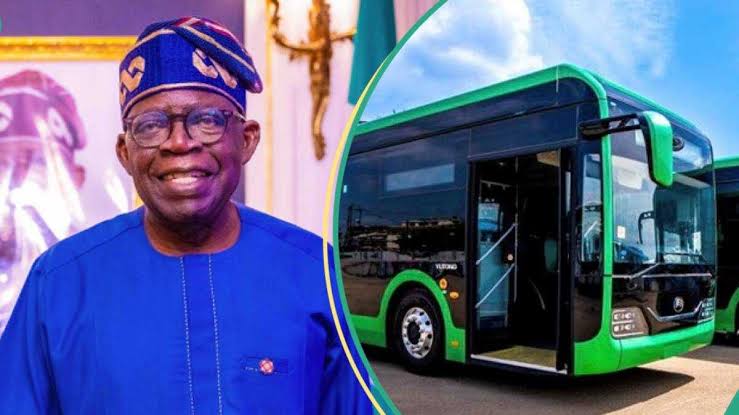In an era where urbanization and population growth have placed immense pressure on Nigeria’s transportation systems, President Bola Ahmed Tinubu has emerged as a transformative leader with a visionary approach to transport and mobility enhancements. With his “Renewed Hope” agenda, President Tinubu has set in motion a series of projects aimed at decongesting traffic, enhancing mobility, and improving the quality of life for millions of Nigerians.
President Tinubu has long recognized the critical role that efficient transportation plays in national development. “Our cities cannot thrive if their people are stuck in traffic for hours,” he remarked in a recent address. “We must create systems that allow people and goods to move swiftly and safely.”
Under President Tinubu’s leadership, the expansion of the Bus Rapid Transit (BRT) system has become a cornerstone of urban transportation improvement. The BRT system, first introduced in Lagos during his tenure as governor, has been expanded to other major cities, offering a fast, reliable, and affordable means of transport for commuters. This expansion has not only eased traffic congestion but also reduced travel times and enhanced connectivity between urban centers and suburbs.
Recognizing the potential of rail transport to transform urban mobility, President Tinubu has championed the development of several rail projects across the country. The Lagos-Ibadan railway, completed under his administration, stands as a testament to his commitment to modernizing Nigeria’s rail infrastructure. This project, part of his broader strategy to link major economic hubs, has significantly reduced travel times and provided a viable alternative to road travel.
In addition, the Abuja-Kaduna rail line, another flagship project, has seen increased patronage, highlighting the demand for efficient and safe rail services. President Tinubu’s push for rail development is not only about easing congestion but also about reducing the environmental impact of transportation and promoting sustainable urban growth.
A critical aspect of President Tinubu’s strategy has been the substantial investment in transportation infrastructure. The administration has prioritized the construction and rehabilitation of roads, bridges, and transport hubs to ensure seamless movement of goods and people. These investments are crucial for boosting economic activities, particularly in areas that were previously underserved by transportation networks.
The focus on infrastructure development is part of President Tinubu’s broader economic vision to make Nigeria a hub for trade and commerce in Africa. By improving connectivity and reducing logistical bottlenecks, his administration aims to attract more investments and create jobs across the nation.
In line with global trends, President Tinubu has advocated for the integration of technology in transportation systems. The adoption of smart traffic management solutions and digital payment systems for public transport has been encouraged to enhance efficiency and user experience. These initiatives not only modernize the transport sector but also align with the government’s digital economy goals.
President Tinubu’s efforts in the transport and mobility sector are driven by a forward-thinking approach. He understands that a robust transportation system is essential for sustainable urban development and economic prosperity. His policies are designed to address both current challenges and future demands, ensuring that Nigeria’s transport infrastructure can support the needs of its growing population.
As Nigeria continues to urbanize, the importance of effective transport systems cannot be overstated. President Tinubu’s focus on enhancing mobility through strategic investments and infrastructure development is paving the way for a more connected and prosperous nation. His “Renewed Hope” agenda offers a blueprint for transforming Nigeria’s transportation landscape and improving the quality of life for all citizens.

